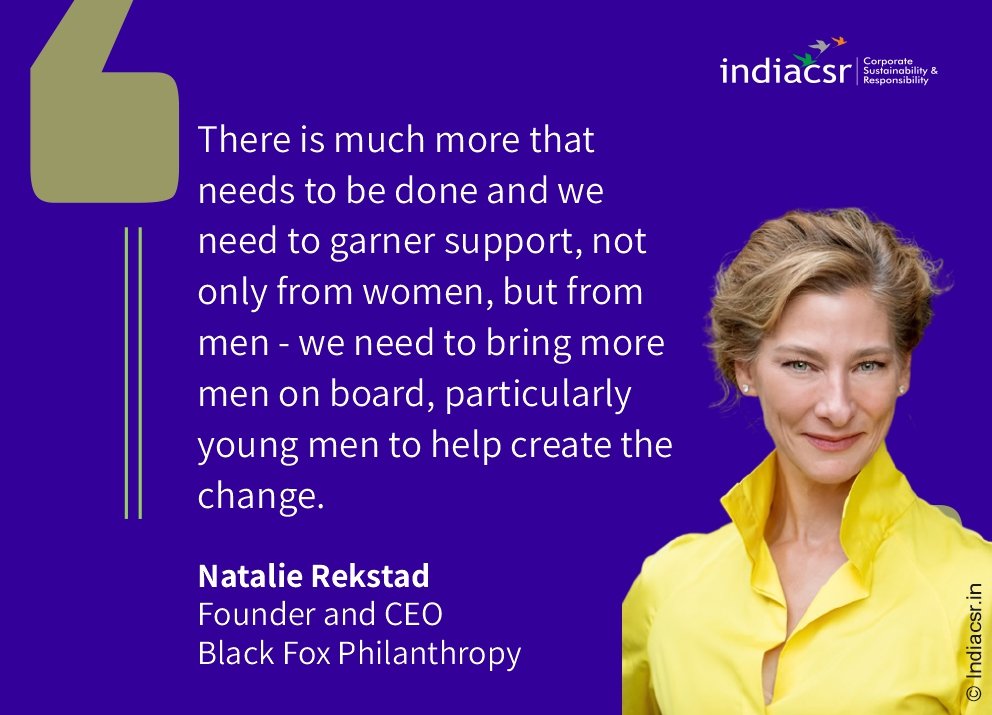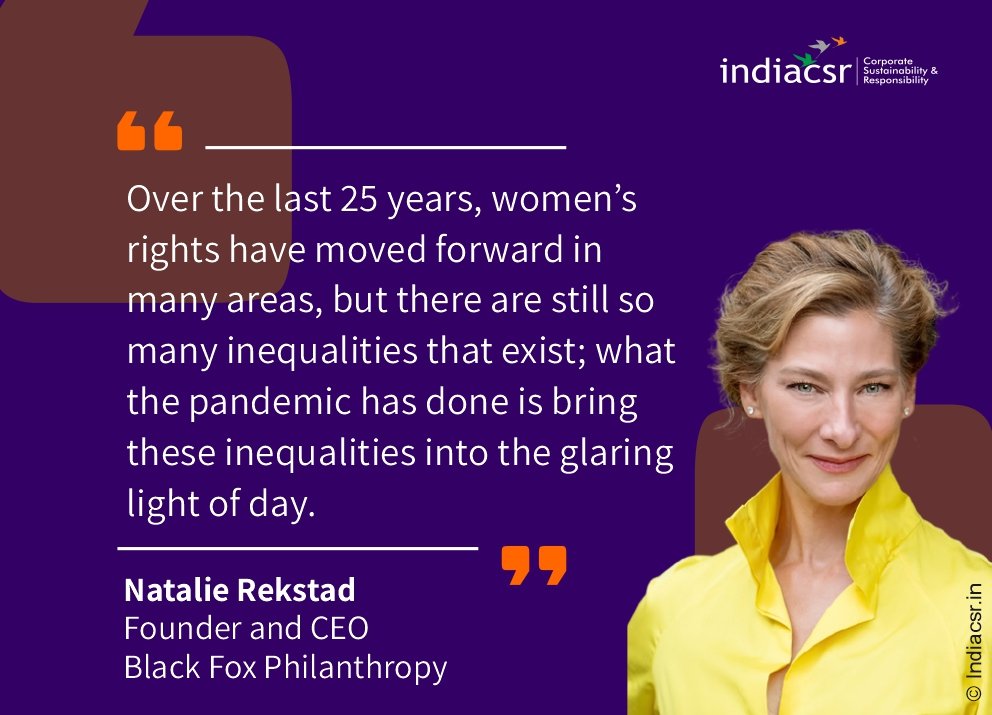In India, mental health issues affected the ability of women to work and the impact was more severe than what was felt globally.
We know that the world over, women have been disproportionately affected by the COVID-19 global pandemic. During this time, many women have lost their jobs, or if they didn’t lose their job, they had to work from home and have had the additional burden of concurrently taking care of their families including children and/or the older generation. While those of us during various lockdowns have also been locked into unhealthy relationships, with no place to escape. In short, whenever there is a crisis, women and children are impacted more than other groups in society.
Data compiled by Bloomberg News shows that women in India suffered disproportionately, because of the coronavirus outbreak, adding to the risks of economic recovery. They have been hit, from lower wages to job losses and slower pace of vaccination to increased mortality. They also fare poorly when compared with women around the world on factors such as unpaid work at home.

Sustainable Development Goals (SDGs)
Now with countries starting to kick-start again, it is important to recognize that women are vital to the global economic recovery from this pandemic. If we look at the Sustainable Development Goals (SDGs), particularly SDG5 on women/equality, we can track the gains achieved over the arc of years’ pre-pandemic, and how hard-hit those gains have been since.
SDG 5 focuses on ending all forms of discrimination against women and girls, to equal opportunities. Providing women and girls with equal access to education, health care, decent work, and representation in political and economic decision-making processes will fuel sustainable economies and benefit societies and humanity at large.

The UN has defined nine targets and 14 Indicators for SDG 5. This pandemic has impacted women in each one of these areas. Over the last 25 years, women’s rights have moved forward in many areas, but there are still so many inequalities that exist; what the pandemic has done, is bring these inequalities into the glaring light of day.
The fact that women are still, in 2021, paid less than men for the same work is one key example, and is one of the demands that is still on the table at international level. There is much more that needs to be done and we need to garner support, not only from women, but from men – we need to bring more men on board, particularly young men to help create the change.

I believe that the future hinges upon a more just and gender balanced world. What matters is that we include everyone in this conversation and in this movement, it is men who are ‘holding up the other half the sky’ (Kristof and WuDunn, 2008). But to truly bring about lasting change, there is a need among men to come to terms with the great loss of being victims of their era(s) and the myth of superiority.
A UN report says that the pandemic will push 96 million people – men and women – into extreme poverty by 2021. Sadly, more than half of them are women and girls, bringing the total number of women and girls living on almost $2 or less to 435 million globally.

Why is this? Well, it’s because women disproportionately work in the informal sector where there is no social protection. They also work on their own in small businesses so they tend to earn less and have fewer savings. Women are also in the types of jobs that don’t lend themselves to online work; for example, the hospitality sector. They are also burdened with unpaid domestic work, which sometimes forces them to leave their paid jobs. On top of this, many women are single parents and often are not in decision-making positions whether in their families, communities or countries.
The problematic combination of informal work, poverty and gender bias is common in many developing nations, but it is particularly acute in India, given the structure of the economy and society. Here, women are employed in the country’s huge informal economy and have been hit disproportionately hard as millions of livelihoods have become even more precarious or evaporated completely.

As the world looks beyond the current crisis to a post-pandemic future, it is essential to ensure lower-skilled workers are not left behind and that they have the tools to achieve self-reliance.
Mental Health
I also want to highlight that mental health is another issue. Not only the mental health of women and girls, but all of us. Mental health, whether it is the mental health of individuals or of communities as a whole, is important. I believe wholeheartedly in preserving our mental health; this is why I helped produce a session for the 2021 Skoll World Forum’s Wellness Hub about burnout.
In India, mental health issues affected the ability of women to work and the impact was more severe than what was felt globally, according to a survey by Deloitte. This can widen India’s already large gender gap. Less than a quarter of women in India are in the labour force, which is among the poorest rate in the world, and they earn 35 percent lower on average than men.

The economic recovery of our respective countries and the world depends on us and I believe, there is a real opportunity now for radical change globally. Research shows that empowering women, from improving their incomes, if made a critical part of recovery from the pandemic, has the potential to dramatically boost the global economy, with gross domestic product forecast to be five percent higher, if women participated in the workforce at the same rate as men.
Empowering Women is Smart Economics
Women are essential to global recovery plans. The International Monetary Fund (IMF) came up with the phrase that ‘Empowering Women is Smart Economics.’ Why does this matter? Because we all benefit. Where there’s more gender equality, there’s more peace: gender equality is a more reliable predictor of peace than a country’s GDP or level of democracy. Advancing gender equality will add billions to all economies.

Gender diversity in leadership roles boosts business performance. And close to home for many of us: Gender equality makes children’s lives better. Teens in countries with higher levels of gender equality experience higher levels of satisfaction than teens in countries with lower levels of gender equality.
Final Thought
I leave you with this final thought, which is that the future hinges upon a more just and gender-balanced world, and it is the feminine side of our natures that will lift our world.
About the Author
Natalie Rekstad, founder and CEO of Black Fox Philanthropy. Delegate and contributor to the Skoll World Forum; Ashoka Arab World; the World Economic Forum, and chosen to be a delegate at TED 2022 in Vancouver, B.C.






